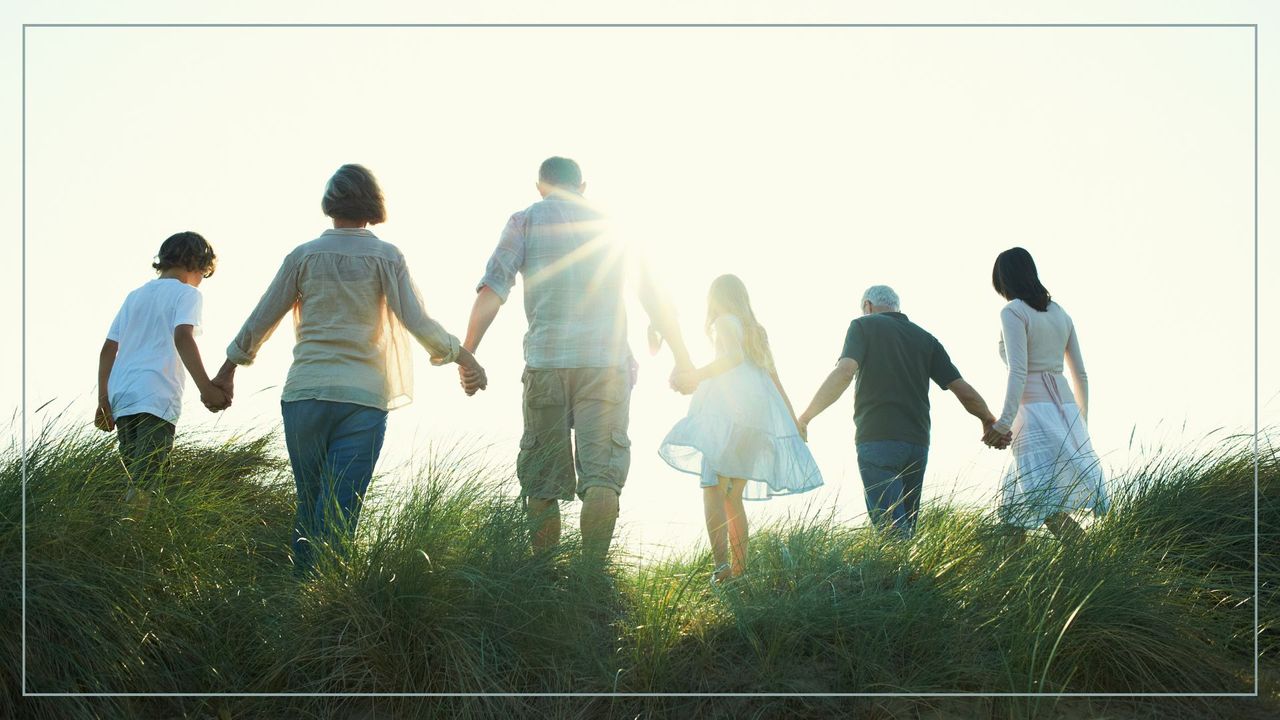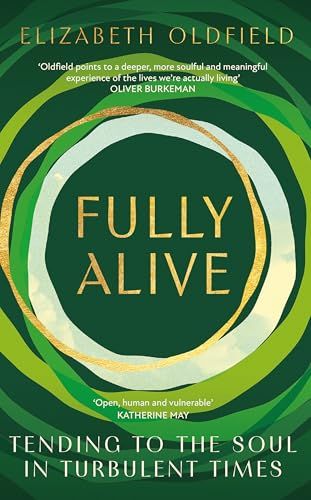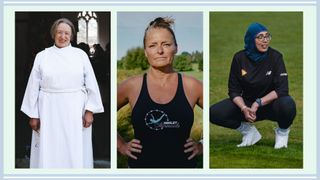Let’s celebrate what unites us – it could help bring us together
We’ll be a happier society if we do, argues coach, consultant and podcast host Elizabeth Oldfield

They used to say you shouldn’t talk about politics or religion at dinner, maybe even at all. Uniquely divisive, the possibility of disagreement is high and disagreement is to be avoided.
My guess is that your mental list of dangerous topics is much longer now. In the last decade, issues such as Brexit, vaccines, gender and race have made navigating the invisible dividing lines at gatherings like playing Twister.
I have spent a decade trying to understand this growing division. It turns out that the dynamics that are driving us apart are actually quite simple, and it’s encouraging to know there are things we can do to resist them.

Have you ever found yourself in a heated discussion at the dinner table?
At the heart of it is what I call People Like Me (PLM) syndrome. Across cultures, humans share one thing: a preference for people like ourselves. Studies show we are more likely to marry, buy from, befriend or vote for those with whom we have a lot in common. Almost everyone is more relaxed, at least on first meeting, with people from our own background.
Repeated studies show football fans are more likely to stop and help an injured person if they are wearing the shirt of the team they support. The tender teenager in all of us is constantly scanning the world like Narcissus, looking for our own reflection.
PLM syndrome is universal, and doesn’t make us bad people, but it does need keeping an eye on. Healthy cultures create the conditions for us to regularly rub up against people Not Like Me (NLM), in schools, workplaces, places of worship and societies, because tolerating or even learning to love people NLM is the only way we can flourish despite our differences. It is also more fun.
Seeds of division
Our societies, rather than creating the conditions to contain our PLM syndrome, have instead encouraged it. Social media relies on making us angry and fearful of each other, because those emotions most easily hook our attention (which can then be redirected to advertising). We are mainly fed perspectives we already agree with, and only shown aspects of NLMs that are likely to enrage us.
Because we are also less likely to go to school with, be in a congregation with or even live near NLMs, we can’t easily check the narrative we are being sold.
I have also come to understand the role of the fight-or-flight stress response. All of us are triggered into at least low-level fight or flight when we meet someone NLM, or encounter a strong difference of opinion.
Fight-or-flight is useful in survival situations, but when we are trying to navigate difference or disagreement, it is deeply unhelpful. It tends to make us defensive, combative and intent on winning. It shuts down the bit of our brain we need for empathy and curiosity, and makes everyone look like an enemy.
Developing empathy

Getting out and meeting new people can be so beneficial
Knowing these two things – that my natural PLM Syndrome needs containing, and that fight-or-flight makes it worse – has really changed how I approach people different from me. I now deliberately spend time with them, listening to and following a wider range of people.
I have learned, now, not to let the threat response rule me when I feel like a fish out of water or if I’m in conversation with someone I disagree with. I try to consciously stay curious and open minded. This changes the dynamics radically. It turns out most people are fascinating and many of them lovely – even those whose views are very different to our own.
I can’t pretend this will bring about world peace (though part of me believes if we could all do this, all the time, it might) but my world feels wider and richer. I can even talk about religion and politics at dinner, and enjoy it.

Elizabeth's book asks 'What does it mean to live a good, whole and fulfilling life? And if the world really is ending, or at least expecting turbulent change, what kind of people will we need when it happens?'
Simple ways to resist polarisation
If you'd like to expand your horizons, meet new people and even boost your social biome, why not try these tips?
- Be brave and join groups with NLMs in them, listen to different voices via podcasts – basically, challenge yourself.
- When you do meet new people unlike yourself, be curious. Ask open questions like ‘What are you passionate about?' and really listen to the answers.
- Be aware of how fight-or-flight affects you, and what triggers it. Do you get snappy and combative (fight) or shut down and withdraw (flight)?
- Ask what helps you come out of fight-or-flight. It might be deep breathing, mindfulness, exercise. Notice when you’re triggered and try not to say anything you’ll regret until you can be your best self again.

This article first appeared in the September 2024 issue of woman&home magazine. Subscribe to the magazine for £6 for 6 issues.
Continue reading
Sign up for the woman&home newsletter
Sign up to our free daily email for the latest royal and entertainment news, interesting opinion, expert advice on styling and beauty trends, and no-nonsense guides to the health and wellness questions you want answered.
Elizabeth is an experienced leader, speaker, coach and consultant with a a masters in Theology and the Arts. She hosts The Sacred podcast , which aims to model courageous conversations with guests across difference, and contributing to a growth in empathy. Her book, Fully Alive: Tending to the Soul in Turbulent Times was released in May 2024.
-
 Not sure what size blender you need? The Ninja Foodi covers single and supersized portions perfectly
Not sure what size blender you need? The Ninja Foodi covers single and supersized portions perfectlyThe Ninja Foodi Power Nutri Blender 3-in-1 covers food processing, big batches of blending, and single servings too. It's a do-it-all model.
By Laura Honey Published
-
 7 key interior design trends for spring 2025 to give your decor a seasonal refresh
7 key interior design trends for spring 2025 to give your decor a seasonal refreshFrom elegant neutrals to uplifting brights, welcome the new season with our round-up of the key trends for your home
By Tamara Kelly Published


